How to Avoid Long-Term Foot Issues
 You should always try to take care of your feet in order to reduce your chance of developing any long-term complications. One of the biggest keys toward preserving your foot health is to make sure you are wearing shoes that fit you properly with good arch support. Another crucial tip is to aid circulation in your feet by stretching, walking, or taking a warm foot bath. Lastly, visiting a podiatrist can help you if you are experiencing any sort of lingering pain or discomfort in your feet.
You should always try to take care of your feet in order to reduce your chance of developing any long-term complications. One of the biggest keys toward preserving your foot health is to make sure you are wearing shoes that fit you properly with good arch support. Another crucial tip is to aid circulation in your feet by stretching, walking, or taking a warm foot bath. Lastly, visiting a podiatrist can help you if you are experiencing any sort of lingering pain or discomfort in your feet.
Everyday foot care is very important to prevent infection and other foot ailments. If you need your feet checked, contact Harvey Jacobs, DPM from Quality Foot Care Center. Our doctor can provide the care you need to keep you pain-free and on your feet.
Everyday Foot Care
Often, people take care of their bodies, face and hair more so than they do for their feet. But the feet are a very important aspect of our bodies, and one that we should pay more attention to. Without our feet, we would not be able to perform most daily tasks.
It is best to check your feet regularly to make sure there are no new bruises or cuts that you may not have noticed before. For dry feet, moisturizer can easily be a remedy and can be applied as often as necessary to the affected areas. Wearing shoes that fit well can also help you maintain good foot health, as well as making it easier to walk and do daily activities without the stress or pain of ill-fitting shoes, high heels, or even flip flops. Wearing clean socks with closed shoes is important to ensure that sweat and bacteria do not accumulate within the shoe. Clean socks help to prevent Athlete’s foot, fungi problems, bad odors, and can absorb sweat.
If you have any questions please feel free to contact our office located in Somerset, NJ . We offer the newest diagnostic and treatment technologies for all your foot and ankle needs.
Getting Proper Diagnosis for Tarsal Tunnel Syndrome
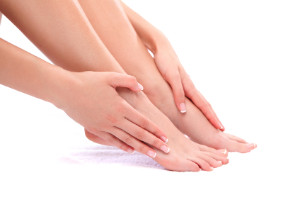 Improper diagnosis is common among sufferers of tarsal tunnel syndrome. Tarsal tunnel syndrome occurs when the tibial nerve, located in the tarsal tunnel experiences compression from injuries like ankle sprains or from conditions such as flat feet. Those who suffer from tarsal tunnel syndrome are often misdiagnosed with another foot injury, such as plantar fasciitis. With careful examination by a podiatrist, tarsal tunnel syndrome can be properly identified and treated.
Improper diagnosis is common among sufferers of tarsal tunnel syndrome. Tarsal tunnel syndrome occurs when the tibial nerve, located in the tarsal tunnel experiences compression from injuries like ankle sprains or from conditions such as flat feet. Those who suffer from tarsal tunnel syndrome are often misdiagnosed with another foot injury, such as plantar fasciitis. With careful examination by a podiatrist, tarsal tunnel syndrome can be properly identified and treated.
Tarsal tunnel syndrome can be very uncomfortable to live with. If you are experiencing tarsal tunnel syndrome, contact Harvey Jacobs, DPM of Quality Foot Care Center. Our doctor can provide the care you need to keep you pain-free and on your feet.
Tarsal Tunnel Syndrome
Tarsal tunnel syndrome, which can also be called tibial nerve dysfunction, is an uncommon condition of misfiring peripheral nerves in the foot. The tibial nerve is the peripheral nerve in the leg responsible for sensation and movement of the foot and calf muscles. In tarsal tunnel syndrome, the tibial nerve is damaged, causing problems with movement and feeling in the foot of the affected leg.
Common Cause of Tarsal Tunnel Syndrome
- Involves pressure or an injury, direct pressure on the tibial nerve for an extended period of time, sometimes caused by other body structures close by or near the knee.
- Diseases that damage nerves, including diabetes, may cause tarsal tunnel syndrome.
- At times, tarsal tunnel syndrome can appear without an obvious cause in some cases.
The Effects of Tarsal Tunnel Syndrome
- Different sensations, an afflicted person may experience pain, tingling, burning or other unusual sensations in the foot of the affected leg.
- The foot muscles, toes and ankle become weaker, and curling your toes or flexing your foot can become difficult.
- If condition worsens, infections and ulcers may develop on the foot that is experiencing the syndrome.
A physical exam of the leg can help identify the presence of tarsal tunnel syndrome. Medical tests, such as a nerve biopsy, are also used to diagnose the condition. Patients may receive physical therapy and prescriptive medication. In extreme cases, some may require surgery.
If you have any questions please feel free to contact our office located in Somerset, NJ . We offer the newest diagnostic and treatment technologies for all your foot and ankle needs.
How to Avoid Getting Plantar Warts
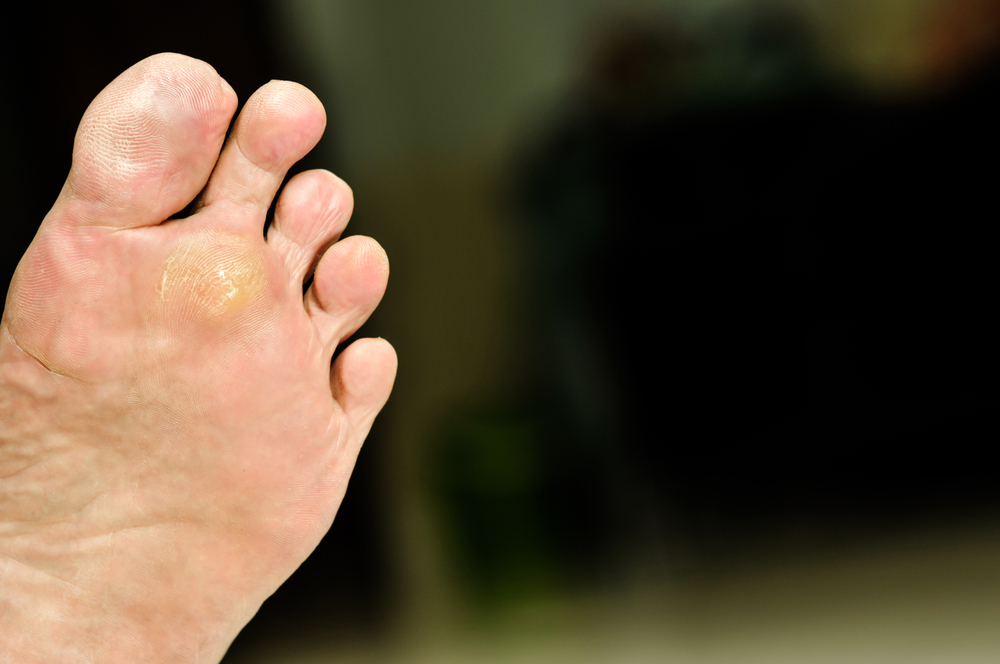 Plantar warts are growths that appear on the feet, especially on the heels. These warts are caused by human papillomavirus (HPV) which enters the body through small cuts or wounds. If you develop a plantar wart and do not treat it, it can become larger and spread to other areas. In order to avoid getting these warts, you should avoid going barefoot in public areas such as locker rooms or dressing rooms. Additionally, make sure you are always wearing clean and dry socks since the virus tends to like hot and humid areas. The inside of a shoe with a sweaty foot is an ideal place for the virus to be.
Plantar warts are growths that appear on the feet, especially on the heels. These warts are caused by human papillomavirus (HPV) which enters the body through small cuts or wounds. If you develop a plantar wart and do not treat it, it can become larger and spread to other areas. In order to avoid getting these warts, you should avoid going barefoot in public areas such as locker rooms or dressing rooms. Additionally, make sure you are always wearing clean and dry socks since the virus tends to like hot and humid areas. The inside of a shoe with a sweaty foot is an ideal place for the virus to be.
Plantar warts can be very uncomfortable. If you need your feet checked, contact Harvey Jacobs, DPM from Quality Foot Care Center. Our doctor will assist you with all of your foot and ankle needs.
About Plantar Warts
Plantar warts are the result of HPV, or human papillomavirus, getting into open wounds on the feet. They are mostly found on the heels or balls of the feet.
While plantar warts are generally harmless, those experiencing excessive pain or those suffering from diabetes or a compromised immune system require immediate medical care. Plantar warts are easily diagnosed, usually through scraping off a bit of rough skin or by getting a biopsy.
Symptoms
- Lesions on the bottom of your feet, usually rough and grainy
- Hard or thick callused spots
- Wart seeds, which are small clotted blood vessels that look like little black spots
- Pain, discomfort, or tenderness of your feet when walking or standing
Treatment
- Freezing
- Electric tool removal
- Laser Treatment
- Topical Creams (prescription only)
- Over-the-counter medications
To help prevent developing plantar warts, avoid walking barefoot over abrasive surfaces that can cause cuts or wounds for HPV to get into. Avoiding direct contact with other warts, as well as not picking or rubbing existing warts, can help prevent the further spread of plantar warts. However, if you think you have developed plantar warts, speak to your podiatrist. He or she can diagnose the warts on your feet and recommend the appropriate treatment options.
If you have any questions please feel free to contact our office located in Somerset, NJ . We offer the newest diagnostic and treatment technologies for all your foot and ankle needs.
What to Look for in Children’s Shoes
 Choosing the right pair of shoes is essential for children. This is due to the fact that children’s feet are still developing, so shoes that aren’t of good quality or fit can potentially create foot problems. When shopping for shoes for your children, make sure they fit properly and that they are durable as well. Rubber soles are recommended to provide good grip and prevent falls. Ensure that the toe-box provides enough wiggle room for their toes and that shoes are made of breathable materials like leather or mesh. Shoes should be stiff where the sole thickens, but flexible where the toes are. It may be tempting to buy shoes that are bigger so that their feet will grow into them, but this could lead to tripping and potential injury. Every child is different, so taking your child to get properly fitted is always recommended.
Choosing the right pair of shoes is essential for children. This is due to the fact that children’s feet are still developing, so shoes that aren’t of good quality or fit can potentially create foot problems. When shopping for shoes for your children, make sure they fit properly and that they are durable as well. Rubber soles are recommended to provide good grip and prevent falls. Ensure that the toe-box provides enough wiggle room for their toes and that shoes are made of breathable materials like leather or mesh. Shoes should be stiff where the sole thickens, but flexible where the toes are. It may be tempting to buy shoes that are bigger so that their feet will grow into them, but this could lead to tripping and potential injury. Every child is different, so taking your child to get properly fitted is always recommended.
Making sure that your children maintain good foot health is very important as they grow. If you have any questions, contact Harvey Jacobs, DPM of Quality Foot Care Center. Our doctor can provide the care you need to keep you pain-free and on your feet.
Keeping Children's Feet Healthy
Having healthy feet during childhood can help prevent medical problems later in life, namely in the back and legs. As children grow, their feet require different types of care. Here are some things to consider...
Although babies do not walk yet, it is still very important to take care of their feet.
Avoid putting tight shoes or socks on his or her feet.
Allow the baby to stretch and kick his or her feet to feel comfortable.
As a toddler, kids are now on the move and begin to develop differently. At this age, toddlers are getting a feel for walking, so don’t be alarmed if your toddler is unsteady or ‘walks funny’.
As your child gets older, it is important to teach them how to take care of their feet.
Show them proper hygiene to prevent infections such as fungus.
Be watchful for any pain or injury.
Have all injuries checked by a doctor as soon as possible.
Comfortable, protective shoes should always be worn, especially at play.
If you have any questions please feel free to contact our office located in Somerset, NJ . We offer the newest diagnostic and treatment technologies for all your foot and ankle needs.
Diet and Gout
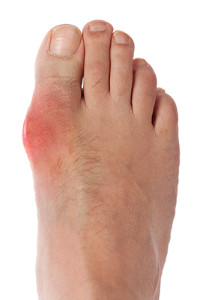 Gout, a form of arthritis caused by uric acid crystals forming in joints, can be very painful and can occur in any joint in the body. Thankfully, gout can be managed with a good diet. Avoiding high intakes of acid-rich food is advised. Purines, which are converted into uric acid by the body, come from animal and plant foods. Purine-rich diets, especially from meat and seafood, increase the risk of gout attacks. While not completely preventing gout attacks, diets with plenty of vegetables do help. Low-fat dairy products have been found to prevent uric acid buildup as well. Alcohol has also been linked with dramatically increased rates of gout attacks, so cutting back on alcohol is a great way to prevent gout attacks. While improving your diet won’t eliminate gout, it will certainly help to lessen attacks and their effects.
Gout, a form of arthritis caused by uric acid crystals forming in joints, can be very painful and can occur in any joint in the body. Thankfully, gout can be managed with a good diet. Avoiding high intakes of acid-rich food is advised. Purines, which are converted into uric acid by the body, come from animal and plant foods. Purine-rich diets, especially from meat and seafood, increase the risk of gout attacks. While not completely preventing gout attacks, diets with plenty of vegetables do help. Low-fat dairy products have been found to prevent uric acid buildup as well. Alcohol has also been linked with dramatically increased rates of gout attacks, so cutting back on alcohol is a great way to prevent gout attacks. While improving your diet won’t eliminate gout, it will certainly help to lessen attacks and their effects.
Gout is a foot condition that requires certain treatment and care. If you are seeking treatment, contact Harvey Jacobs, DPM from Quality Foot Care Center. Our doctor will treat your foot and ankle needs.
What Is Gout?
Gout is a type of arthritis caused by a buildup of uric acid in the bloodstream. It often develops in the foot, especially the big toe area, although it can manifest in other parts of the body as well. Gout can make walking and standing very painful and is especially common in diabetics and the obese.
People typically get gout because of a poor diet. Genetic predisposition is also a factor. The children of parents who have had gout frequently have a chance of developing it themselves.
Gout can easily be identified by redness and inflammation of the big toe and the surrounding areas of the foot. Other symptoms include extreme fatigue, joint pain, and running high fevers. Sometimes corticosteroid drugs can be prescribed to treat gout, but the best way to combat this disease is to get more exercise and eat a better diet.
If you have any questions please feel free to contact our office located in Somerset, NJ . We offer the newest diagnostic and treatment technologies for all your foot and ankle needs.
North Carolina State Safety Tears Achilles Tendon
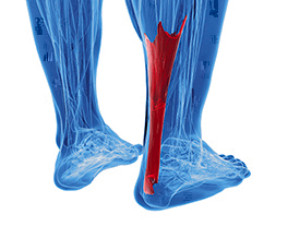 North Carolina State Wolfpack coach Dave Doeren announced that safety Freddie Phillips Jr. has torn his Achilles tendon. As is expected with such a severe injury, he will be out for the rest of the season. The safety was previously injured during the North Carolina vs. South Carolina game in which North Carolina lost. Phillips, while not a starting player, was backup in the nickelback position behind teammate and fellow safety Shawn Boone.
North Carolina State Wolfpack coach Dave Doeren announced that safety Freddie Phillips Jr. has torn his Achilles tendon. As is expected with such a severe injury, he will be out for the rest of the season. The safety was previously injured during the North Carolina vs. South Carolina game in which North Carolina lost. Phillips, while not a starting player, was backup in the nickelback position behind teammate and fellow safety Shawn Boone.
Sports related foot and ankle injuries require proper treatment before players can go back to their regular routines. For more information, contact Harvey Jacobs, DPM of Quality Foot Care Center. Our doctor can provide the care you need to keep you pain-free and on your feet.
Sports Related Foot and Ankle Injuries
Foot and ankle injuries are a common occurrence when it comes to athletes of any sport. While many athletes dismiss the initial aches and pains, the truth is that ignoring potential foot and ankle injuries can lead to serious problems. As athletes continue to place pressure and strain the area further, a mild injury can turn into something as serious as a rupture and may lead to a permanent disability. There are many factors that contribute to sports related foot and ankle injuries, which include failure to warm up properly, not providing support or wearing bad footwear. Common injuries and conditions athletes face, including:
- Plantar Fasciitis
- Plantar Fasciosis
- Achilles Tendinitis
- Achilles Tendon Rupture
- Ankle Sprains
Sports related injuries are commonly treated using the RICE method. This includes rest, applying ice to the injured area, compression and elevating the ankle. More serious sprains and injuries may require surgery, which could include arthroscopic and reconstructive surgery. Rehabilitation and therapy may also be required in order to get any recovering athlete to become fully functional again. Any unusual aches and pains an athlete sustains must be evaluated by a licensed, reputable medical professional.
If you have any questions please feel free to contact our office located in Somerset, NJ . We offer the newest diagnostic and treatment technologies for all your foot and ankle needs.
Bunions and Surgery
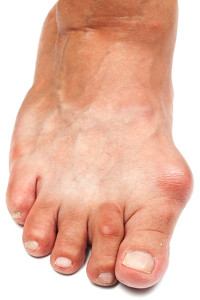 Bunions, if left untreated, can start to throb and become very painful. Does this mean that you should have surgery to treat your bunions before they start hurting? Not necessarily; there are plenty of nonsurgical options available to treat bunions and the associated pain. It is best to see a podiatrist first, however, as they can discuss the options available to you. Common conservative options include trying new pairs of shoes that offer more room and keep pressure off the bunion. Bunions pads are another readily available option that also help ease pressure on the bunion. Anti-inflammatory medication can provide temporary relief from pain and inflammation, and cortisone shots can help with that too. If conservative measures such as these do not ease pain, then surgery may be recommended by a podiatrist.
Bunions, if left untreated, can start to throb and become very painful. Does this mean that you should have surgery to treat your bunions before they start hurting? Not necessarily; there are plenty of nonsurgical options available to treat bunions and the associated pain. It is best to see a podiatrist first, however, as they can discuss the options available to you. Common conservative options include trying new pairs of shoes that offer more room and keep pressure off the bunion. Bunions pads are another readily available option that also help ease pressure on the bunion. Anti-inflammatory medication can provide temporary relief from pain and inflammation, and cortisone shots can help with that too. If conservative measures such as these do not ease pain, then surgery may be recommended by a podiatrist.
If you are suffering from bunions, contact Harvey Jacobs, DPM of Quality Foot Care Center. Our doctor can provide the care you need to keep you pain-free and on your feet.
What Is a Bunion?
A bunion is formed of swollen tissue or an enlargement of boney growth, usually located at the base joint of the toe that connects to the foot. The swelling occurs due to the bones in the big toe shifting inward, which impacts the other toes of the foot. This causes the area around the base of the big toe to become inflamed and painful.
Why Do Bunions Form?
Genetics – Susceptibility to bunions are often hereditary
Stress on the feet – Poorly fitted and uncomfortable footwear that places stress on feet, such as heels, can worsen existing bunions
How Are Bunions Diagnosed?
Doctors often perform two tests – blood tests and x-rays – when trying to diagnose bunions, especially in the early stages of development. Blood tests help determine if the foot pain is being caused by something else, such as arthritis, while x-rays provide a clear picture of your bone structure to your doctor.
How Are Bunions Treated?
- Refrain from wearing heels or similar shoes that cause discomfort
- Select wider shoes that can provide more comfort and reduce pain
- Anti-inflammatory and pain management drugs
- Orthotics or foot inserts
- Surgery
If you have any questions, please feel free to contact our office located in Somerset, NJ . We offer the newest diagnostic and treatment technologies for all your foot care needs.
Exercises for Plantar Fasciitis
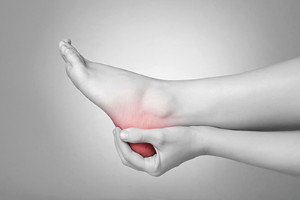 Plantar fasciitis and heel pain can both be very painful and uncomfortable. While stretching won’t eliminate the pain, it can help mitigate it. Some stretches that you can perform include the quadruped stretch, isolated calf raise, and even a foot massage. Before you do these, ask your podiatrist whether stretching is right for you. To do a quadruped stretch, get on all fours and spread your toes on the floor. Next, lean back slowly and sit on your heels while holding this position for 30 seconds. For isolated calf raises, lunge with your left leg forward and right leg back. Then, with your right foot flat, lift up onto the ball of your right foot. Do this for 10-15 reps on each side and for three repetitions. To massage your foot, push down on the center of the bottom of the foot and use a circular motion while applying pressure. These stretches will not eliminate plantar fasciitis and are only meant to temporarily reduce pain. If you have heel pain, it is recommended that you see a podiatrist who can offer effective treatment strategies.
Plantar fasciitis and heel pain can both be very painful and uncomfortable. While stretching won’t eliminate the pain, it can help mitigate it. Some stretches that you can perform include the quadruped stretch, isolated calf raise, and even a foot massage. Before you do these, ask your podiatrist whether stretching is right for you. To do a quadruped stretch, get on all fours and spread your toes on the floor. Next, lean back slowly and sit on your heels while holding this position for 30 seconds. For isolated calf raises, lunge with your left leg forward and right leg back. Then, with your right foot flat, lift up onto the ball of your right foot. Do this for 10-15 reps on each side and for three repetitions. To massage your foot, push down on the center of the bottom of the foot and use a circular motion while applying pressure. These stretches will not eliminate plantar fasciitis and are only meant to temporarily reduce pain. If you have heel pain, it is recommended that you see a podiatrist who can offer effective treatment strategies.
Plantar fasciitis can be very painful and inconvenient. If you are experiencing heel pain or symptoms of plantar fasciitis, contact Harvey Jacobs, DPM from Quality Foot Care Center. Our doctor can provide the care you need to keep you pain-free and on your feet.
What Is Plantar Fasciitis?
Plantar fasciitis is the inflammation of the thick band of tissue that runs along the bottom of your foot, known as the plantar fascia, and causes mild to severe heel pain.
What Causes Plantar Fasciitis?
- Excessive running
- Non-supportive shoes
- Overpronation
- Repeated stretching and tearing of the plantar fascia
How Can It Be Treated?
- Conservative measures – anti-inflammatories, ice packs, stretching exercises, physical therapy, orthotic devices
- Shockwave therapy – sound waves are sent to the affected area to facilitate healing and are usually used for chronic cases of plantar fasciitis
- Surgery – usually only used as a last resort when all else fails. The plantar fascia can be surgically detached from the heel
While very treatable, plantar fasciitis is definitely not something that should be ignored. Especially in severe cases, speaking to your doctor right away is highly recommended to avoid complications and severe heel pain. Your podiatrist can work with you to provide the appropriate treatment options tailored to your condition.
If you have any questions please feel free to contact our office located in Somerset, NJ . We offer the newest diagnostic and treatment technologies for all your foot and ankle needs.
Treating Diabetic Foot Ulcers
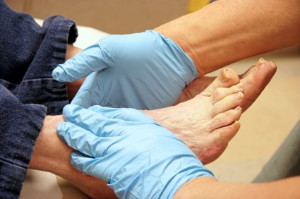 Foot ulcers are one of the greatest threats a diabetic can experience. While small cuts on the foot are generally not a problem for most people, for diabetics they can be very serious. Many diabetics experience neuropathy, or nerve damage, and cannot feel when they have a wound on their leg. Diabetes can also lead to poor blood circulation, which can make it harder for wounds to heal properly. Untreated ulcers have the potential to become infected. In extremely severe cases of infection, amputation may be necessary. If you are diabetic and have a foot wound, it is recommended to see a podiatrist immediately. A podiatrist will examine the wound and properly clean it. If the ulcer is infected but the infection is not serious, antibiotics will most likely be prescribed. Finally, the podiatrist can provide orthotics or other devices to keep weight off the wound. The doctor will also want to have another checkup to make sure that the wound begins to heal. However, if the infection is severe, then amputation or limb salvage may be necessary. Ultimately, the best way to prevent amputation is through daily foot inspections of any abnormalities and monitoring your diabetes closely.
Foot ulcers are one of the greatest threats a diabetic can experience. While small cuts on the foot are generally not a problem for most people, for diabetics they can be very serious. Many diabetics experience neuropathy, or nerve damage, and cannot feel when they have a wound on their leg. Diabetes can also lead to poor blood circulation, which can make it harder for wounds to heal properly. Untreated ulcers have the potential to become infected. In extremely severe cases of infection, amputation may be necessary. If you are diabetic and have a foot wound, it is recommended to see a podiatrist immediately. A podiatrist will examine the wound and properly clean it. If the ulcer is infected but the infection is not serious, antibiotics will most likely be prescribed. Finally, the podiatrist can provide orthotics or other devices to keep weight off the wound. The doctor will also want to have another checkup to make sure that the wound begins to heal. However, if the infection is severe, then amputation or limb salvage may be necessary. Ultimately, the best way to prevent amputation is through daily foot inspections of any abnormalities and monitoring your diabetes closely.
Diabetic foot care is important in preventing foot ailments such as ulcers. If you are suffering from diabetes or have any other concerns about your feet, contact Harvey Jacobs, DPM from Quality Foot Care Center. Our doctor can provide the care you need to keep you pain-free and on your feet.
Diabetic Foot Care
Diabetes affects millions of people every year. The condition can damage blood vessels in many parts of the body, especially the feet. Because of this, taking care of your feet is essential if you have diabetes, and having a podiatrist help monitor your foot health is highly recommended.
The Importance of Caring for Your Feet
- Routinely inspect your feet for bruises or sores.
- Wear socks that fit your feet comfortably.
- Wear comfortable shoes that provide adequate support.
Patients with diabetes should have their doctor monitor their blood levels, as blood sugar levels play such a huge role in diabetic care. Monitoring these levels on a regular basis is highly advised.
It is always best to inform your healthcare professional of any concerns you may have regarding your feet, especially for diabetic patients. Early treatment and routine foot examinations are keys to maintaining proper health, especially because severe complications can arise if proper treatment is not applied.
If you have any questions please feel free to contact our office located in Somerset, NJ . We offer the newest diagnostic and treatment technologies for all your foot and ankle needs.
Cold Feet and Blood Circulation
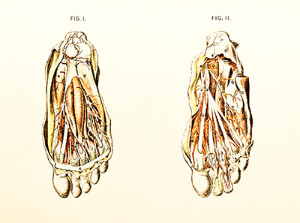 While most people have experienced cold feet at some point in their life, some experience it during times when the weather isn’t necessarily cold. This can be due to poor blood circulation, which in itself can be caused by a number of conditions. Some of these conditions can include anemia, diabetes, hypothyroidism, and peripheral vascular disease, among others. If your feet are cold frequently or have been cold for a long time, it is strongly recommended to see a podiatrist who can diagnose your condition. The podiatrist may have to utilize several tests to determine the exact cause. Once a cause is found, treatment will vary depending upon the condition.
While most people have experienced cold feet at some point in their life, some experience it during times when the weather isn’t necessarily cold. This can be due to poor blood circulation, which in itself can be caused by a number of conditions. Some of these conditions can include anemia, diabetes, hypothyroidism, and peripheral vascular disease, among others. If your feet are cold frequently or have been cold for a long time, it is strongly recommended to see a podiatrist who can diagnose your condition. The podiatrist may have to utilize several tests to determine the exact cause. Once a cause is found, treatment will vary depending upon the condition.
Poor circulation is a serious condition and needs immediate medical attention. If you have any concerns with poor circulation in your feet contact Harvey Jacobs, DPM of Quality Foot Care Center. Our doctor will treat your foot and ankle needs.
Poor Circulation in the Feet
Poor blood circulation in the feet and legs is can be caused by peripheral artery disease (PAD), which is the result of a buildup of plaque in the arteries.
Plaque buildup or atherosclerosis results from excess calcium and cholesterol in the bloodstream. This can restrict the amount of blood which can flow through the arteries. Poor blood circulation in the feet and legs are sometimes caused by inflammation in the blood vessels, known as vasculitis.
Causes
Lack of oxygen and oxygen from poor blood circulation restricts muscle growth and development. It can also cause:
- Muscle pain, stiffness, or weakness
- Numbness or cramping in the legs
- Skin discoloration
- Slower nail & hair growth
- Erectile dysfunction
Those who have diabetes or smoke are at greatest risk for poor circulation, as are those who are over 50. If you have poor circulation in the feet and legs it may be caused by PAD and is important to make changes to your lifestyle in order to reduce risk of getting a heart attack or stroke. Exercise and maintaining a healthy lifestyle will dramatically improve conditions.
As always, see a podiatrist as he or she will assist in finding a regimen that suits you. A podiatrist can also prescribe you any needed medication.
If you have any questions please feel free to contact our office located in Somerset, NJ . We offer the newest diagnostic and treatment technologies for all your foot and ankle needs.
More...
Cavaliers Player Derrick Rose Sprains Ankle
 Derrick Rose of the Cleveland Cavaliers sprained his left ankle during the Cavaliers vs Milwaukee Bucks game. Rose was hit by Bucks center Greg Monroe while jumping to perform a layup in the fourth quarter. The hit caused him to land with his ankle turned inward, causing a sprain. The hit was ruled as a common foul rather than a flagrant foul. Rose left the game having scored 12 points, which helped the Cavaliers win 116 to 97. It is unknown how long Rose will be out for, if at all.
Derrick Rose of the Cleveland Cavaliers sprained his left ankle during the Cavaliers vs Milwaukee Bucks game. Rose was hit by Bucks center Greg Monroe while jumping to perform a layup in the fourth quarter. The hit caused him to land with his ankle turned inward, causing a sprain. The hit was ruled as a common foul rather than a flagrant foul. Rose left the game having scored 12 points, which helped the Cavaliers win 116 to 97. It is unknown how long Rose will be out for, if at all.
Sports related foot and ankle injuries require proper treatment before players can go back to their regular routines. For more information, contact Harvey Jacobs, DPM of Quality Foot Care Center. Our doctor can provide the care you need to keep you pain-free and on your feet.
Sports Related Foot and Ankle Injuries
Foot and ankle injuries are a common occurrence when it comes to athletes of any sport. While many athletes dismiss the initial aches and pains, the truth is that ignoring potential foot and ankle injuries can lead to serious problems. As athletes continue to place pressure and strain the area further, a mild injury can turn into something as serious as a rupture and may lead to a permanent disability. There are many factors that contribute to sports related foot and ankle injuries, which include failure to warm up properly, not providing support or wearing bad footwear. Common injuries and conditions athletes face, including:
- Plantar Fasciitis
- Plantar Fasciosis
- Achilles Tendinitis
- Achilles Tendon Rupture
- Ankle Sprains
Sports related injuries are commonly treated using the RICE method. This includes rest, applying ice to the injured area, compression and elevating the ankle. More serious sprains and injuries may require surgery, which could include arthroscopic and reconstructive surgery. Rehabilitation and therapy may also be required in order to get any recovering athlete to become fully functional again. Any unusual aches and pains an athlete sustains must be evaluated by a licensed, reputable medical professional.
If you have any questions please feel free to contact our office located in Somerset, NJ . We offer the newest diagnostic and treatment technologies for all your foot and ankle needs.
New Study Seeks Ways to Prevent Stress Fractures
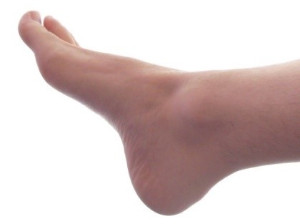 A new study conducted by the University of Oregon, and with the participation of Stanford University, the University of Southern California, and the University of Colorado Boulder, seeks to identify athletes who are likely to develop stress fractures. With newly known risk factor indicators available, athletes who are at risk for stress fractures can be alerted and allowed to rest to prevent them. Stress fractures, or tiny hairline fractures in the bone, most commonly occur from overuse and lack of rest. The study is still in its early stages and will take several years to produce conclusive results. Researchers are hopeful that this will help prevent athlete's injuring themselves and allow them to keep playing.
A new study conducted by the University of Oregon, and with the participation of Stanford University, the University of Southern California, and the University of Colorado Boulder, seeks to identify athletes who are likely to develop stress fractures. With newly known risk factor indicators available, athletes who are at risk for stress fractures can be alerted and allowed to rest to prevent them. Stress fractures, or tiny hairline fractures in the bone, most commonly occur from overuse and lack of rest. The study is still in its early stages and will take several years to produce conclusive results. Researchers are hopeful that this will help prevent athlete's injuring themselves and allow them to keep playing.
Activities where too much pressure is put on the feet can cause stress fractures. To learn more, contact Harvey Jacobs, DPM from Quality Foot Care Center. Our doctor can provide the care you need to keep your pain free and on your feet.
Dealing with Stress Fractures of the Foot and Ankle
Stress fractures occur in the foot and ankle when muscles in these areas weaken from too much or too little use. The feet and ankles then lose support when walking or running from the impact of the ground. Since there is no protection, the bones receive the full impact of each step. Stress on the feet can cause cracks to form in the bones, thus creating stress fractures.
What Are Stress Fractures?
Stress fractures occur frequently in individuals whose daily activities cause great impact on the feet and ankles. Stress factors are most common among:
- Runners
- People affected with Osteoporosis
- Tennis or basketball players
- Gymnasts
- High impact workouts
Symptoms
Pain from the fractures occur in the area of the fractures and can be constant or intermittent. It will often cause sharp or dull pain with swelling and tenderness. Engaging in any kind of activity which involves high impact will aggravate pain.
If you have any questions please feel free to contact our office located in Somerset, NJ . We offer the newest diagnostic and treatment technologies for all your foot and ankle needs.
Exercise Programs and Therapy Help to Reduce Falls Among the Elderly
 Researchers have recently examined data and found that elderly persons who engaged in exercise programs were 49 percent less likely to have an injury caused by a fall. In addition to this impressive result, those who partook in exercise programs and vision exams had 83 percent lower odds of an injury resulting from a fall. Those who took vitamin supplements and had geriatric assessments in addition to exercise programs and vision exams had 88 percent lower odds. This data helps to show that not only did these steps help prevent falls, they also reduced the impact of an injury from a fall.
Researchers have recently examined data and found that elderly persons who engaged in exercise programs were 49 percent less likely to have an injury caused by a fall. In addition to this impressive result, those who partook in exercise programs and vision exams had 83 percent lower odds of an injury resulting from a fall. Those who took vitamin supplements and had geriatric assessments in addition to exercise programs and vision exams had 88 percent lower odds. This data helps to show that not only did these steps help prevent falls, they also reduced the impact of an injury from a fall.
Preventing falls among the elderly is very important. If you are older and have fallen or fear that you are prone to falling, consult with Harvey Jacobs, DPM from Quality Foot Care Center. Our doctor will assess your condition and provide you with quality advice and care.
Every 11 seconds, an elderly American is being treated in an emergency room for a fall related injury. Falls are the leading cause of head and hip injuries for those 65 and older. Due to decreases in strength, balance, senses, and lack of awareness, elderly persons are very susceptible to falling. Thankfully, there are a number of things older persons can do to prevent falls.
How to Prevent Falls
Some effective methods that older persons can do to prevent falls include:
- Enrolling in strength and balance exercise program to increase balance and strength
- Periodically having your sight and hearing checked
- Discuss any medications you have with a doctor to see if it increases the risk of falling
- Clearing the house of falling hazards and installing devices like grab bars and railings
- Utilizing a walker or cane
- Wearing shoes that provide good support and cushioning
- Talking to family members about falling and increasing awareness
Falling can be a traumatic and embarrassing experience for elderly persons; this can make them less willing to leave the house, and less willing to talk to someone about their fears of falling. Doing such things, however, will increase the likelihood of tripping or losing one’s balance. Knowing the causes of falling and how to prevent them is the best way to mitigate the risk of serious injury.
If you have any questions, please feel free to contact our office located in Somerset, NJ . We offer the newest diagnostic and treatment technologies for all your foot care needs.
Treatment of Sever’s Disease
Typically Sever’s disease occurs in children between the ages of 8 and 12 years old. It occurs when the heel has not completed growing and becomes injured. The heel is less flexible as the tendons and muscles become tight. Activities that include running and jumping are common culprits when it comes to this injury. If you notice your child limping after engaging in physical activity, there might be a chance that they could have the disorder. In addition to this, a tendency to tiptoe may be noticed. Treatment includes stopping or cutting back any activity that may have caused the pain. Stretching the hamstrings and calf muscles as well as the back of the leg can be useful in managing this condition. Long-term problems have not been linked to Sever’s disease, however a podiatrist may be consulted if the heel pain does not improve with treatment.
Sever's disease often occurs in children and teens. If your child is experiencing foot or ankle pain, see Harvey Jacobs, DPM from Quality Foot Care Center. Our doctor can treat your child’s foot and ankle needs.
Sever’s Disease
Sever’s disease is also known as calcaneal apophysitis, which is a medical condition that causes heel pain I none or both feet. The disease is known to affect children between the ages of 8 and 14.
Sever’s disease occurs when part of the child’s heel known as the growth plate (calcaneal epiphysis) is attached to the Achilles tendon. This area can suffer injury when the muscles and tendons of the growing foot do not keep pace with bone growth. Therefore, the constant pain which one experiences at the back of the heel will make the child unable to put any weight on the heel. The child is then forced to walk on their toes.
Symptoms
Acute pain – Pain associated with Sever’s disease is usually felt in the heel when the child engages in physical activity such as walking, jumping and or running.
Highly active – Children who are very active are among the most susceptible in experiencing Sever’s disease, because of the stress and tension placed on their feet.
If you have any questions, please feel free to contact our office located in Somerset, NJ . We offer the newest diagnostic and treatment technologies for all your foot and ankle injuries.
